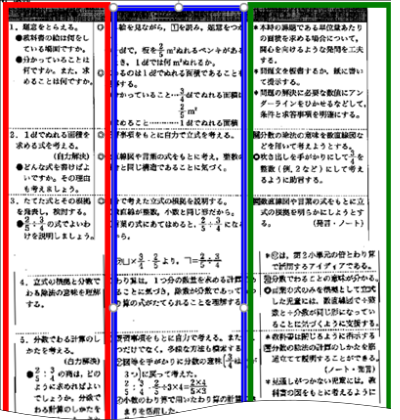Issue 11 – May 2018
Special Issue on Lesson Study
This special issue of Educational Designer focusses on Lesson Study, also named as Japanese Lesson Study by those who
point to its roots. The contributions connect Lesson Study and its design processes in a broad international context.
In his introduction, Max Stephens explains some key features of Lesson Study in Mathematics and why it has been chosen
for this special issue. His second contribution examines its potential to improve instructional design and the quality
of teaching and learning. Three papers report on adapting Lesson Study to schools outside of Japan: Marlon Ebaeguin
examines the cultural foundations and pedagogical assumptions relevant to adapting Lesson Study for Philippine schools;
Tad Watanabe writes from first-hand experience of Lesson Study in Japan and in the United States, and
da Ponte,
Quaresma, Mata-Pereira, and Baptista
discuss the successes and challenges of Lesson Study with first-time teachers
in Portugal. Interestingly, from Japan, Nishimura, Kobayashi and Ohta describe how Lesson Study, which has been
a strong feature of elementary and middle schools in Japan, can be enacted in the senior high school.
I thank Max Stephens for organising this highly international issue, Sheila Evans for checking and editing, and Daniel Pead, our webmaster. The editorial team
hopes that you find the articles in this issue valuable for your work.
Kaye Stacey
Editor in Chief
Introduction
Lesson study from Japan to the world
Max Stephens
This article introduces the five substantive papers in this special issue on Lesson Study. It begins with a short description
of the practice and the assumptions behind it, highlighting features that may not be easily appreciated by an international
audience. Reflections on each of the contributions in this special issue follow.
Max Stephens
This paper highlights the difference between the common approach to improving educational outcomes by aiming to improve the
characteristics of teachers, with an approach through Lesson Study that is directly focussed on the teaching
and learning process. It points out the value of the lesson proposal as an artefact of the design process and
a public record to be shared with the profession. Lesson proposals include tasks that can be solved in multiple
ways and carefully anticipated students' solutions. Lesson Study focusses on the mathematical activity and thinking of
the students, and supports a continuous process of action and reflection to improve teaching and learning.
Marlon Ebaeguin
Over the past two decades, there have been many efforts to translate Japanese Lesson Study to other countries. Most
of these efforts employed a simple “copy-paste” model that does not take into account culturally-rooted conventions
and practices, or differences in pedagogical beliefs and values. This study proposed a culturally embedded approach
to implementing Lesson Study that critically considers disparities between Japan and the Philippines as seen through
Hofstede’s dimensions of national culture. Results from two surveys of teachers identified areas of tensions and
incongruences between Japanese and Filipino teachers, and informed the design of a Lesson Study implementation at
two Philippine public high schools. At the end of three cycles of Lesson Study, many beliefs and skills of the 13
participating teachers had shifted positively in favour of Lesson Study. This study showed that a culturally
embedded approach enhances chances of a successful Lesson Study implementation, and could inform Lesson Study in
other contexts. (Edited 9 Aug 2019.)
Tad Watanabe
Japanese lesson study continues to attract the attention of U.S. educators more than 15 years after its first introduction.
Research supporting its effectiveness in terms of students’ learning is beginning to emerge. When a practice that is
successful in one culture is imported into another, however, there are usually some obstacles and challenges, and this
has been the case with Japanese lesson study. As educators around the world attempt to implement Japanese lesson study
in their own situations, it is important for us to consider what the essential design features of lesson study are. The
purpose of this article is to reflect on the initial 15 years of Japanese lesson study in the United States and identify
those factors that contributed to its successes and also those that may have prevented it from achieving its fullest
potential. We will also discuss additional factors that may support successful implementation of Japanese lesson study
outside of Japan.
Keiichi Nishimura, Ren Kobayashi, Shinya Ohta
It is well known that Lesson Study is deeply rooted in school education in Japan.
Though Lesson Study is seen at upper secondary level in Japan, it is different from that at primary and lower secondary levels.
In many case at upper secondary level, Lesson Study focuses on the “mathematical content” of the lesson or
“teaching skill” for explaining the solutions. This paper examines in detail Lesson Study at year 12 of the
Project IMPULS (International Math-teacher Professionalization Using Lesson Study)
Lesson Study Immersion Program in 2014. The teacher focused on the process of problem-solving for measures
against an infectious disease. Based on the lesson plan and teacher practice, especially student activities,
we identify the possibilities of and issues concerning Lesson Study at upper secondary level.
João Pedro da Ponte, Marisa Quaresma, Joana Mata-Pereira, Mónica Baptista
In this paper we address design issues of lesson studies that aim to support practicing teachers’ professional development.
We discuss these issues based in the cases of two lesson studies that we conducted in the academic year of 2013-2014 in a
cluster of schools in Lisbon. We strive to show that, besides the consideration of the mathematical content, task features,
and focus on student reasoning, attention needs to be paid to organizational issues regarding the way the teachers are invited
to become involved in lesson studies and to the collaborative environment provided. We also conclude critical design factors
for the success of a lesson study include the investigation style of the whole activity, the combination of teachers’ experiential
knowledge with research knowledge, and the exploratory and collaborative environment that frames the activities that the
teachers undertake.





